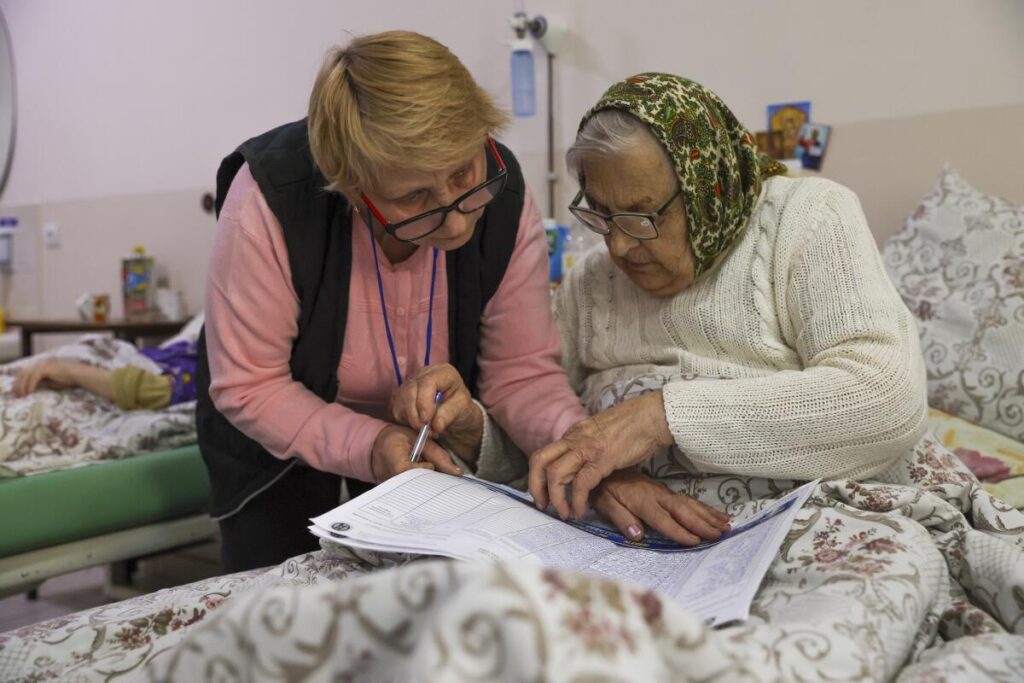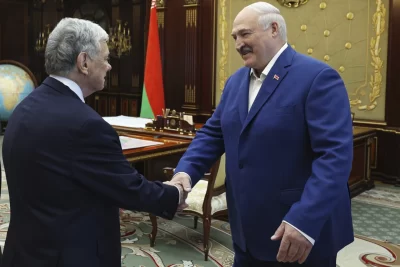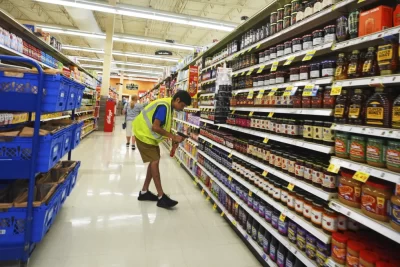
Moldovans are casting ballots in nationwide local elections on Sunday as authorities say that Russia has been conducting “hybrid warfare” to undermine the vote in the European Union candidate country.
While local elections in Moldova, a country of about 2.5 million people situated between Romania and Ukraine, wouldn’t usually garner much international attention, ongoing accusations of Russian meddling add a geopolitical dimension to the vote.
Sunday’s ballot will elect nearly 900 mayors and 11,000 local councilors for a four-year term, including key positions such as mayor of the capital, Chisinau. The ballot will be monitored by around 1,500 national and international observers.
Two days before the election, Moldova Prime Minister Dorin Recean announced a ban on candidates from the pro-Russia Chance Party. On Friday, Moldova’s national intelligence agency published a report alleging that Russia was trying to “influence the electoral process” through the party. About 600 candidates will be affected.
“We are protecting the Republic of Moldova from a well-organized network of criminals. An organized criminal group is removed from the elections, not a political party,” Recean said on Friday during a media briefing.
Shor, who resides in Israel and was sentenced in absentia in April to 15 years in jail on fraud charges, reacted to the party’s ban in a Facebook post, calling it an “unprecedented, illegal, raiding power grab” and providing a list of alternative candidate endorsements.
Addressing the party’s ban on Sunday in Chisinau, Moldovan President Maia Sandu told reporters that “elections are about democracy and compliance with the law. Those who do not follow the law, bribe voters, use illegal money — do not meet democratic standards.”
Outside a polling station in the capital on Sunday, retiree Anatol Mosanu said he voted for a “better life, better roads … for tomorrow to be better than today.”
“We’re all expecting … that in the future, our children will not leave this place, and we will be surrounded by our children, our grandchildren,” he said, referring to the high numbers of Moldovans who move abroad for better wages and working conditions.
Cristian Cantir, a Moldovan associate professor of international relations at Oakland University, said that although Sunday’s election is “very much about local issues,” they are “also important geopolitically.”
“Moldova continues to be a very polarized country from a geopolitical standpoint,” he told The Associated Press. “The debate is going to really hinge on pro-EU and anti-EU messaging.”
Cantir added that the “pretty damning” SIS report contained “a lot of evidence suggesting that Shor in particular has been working with the Kremlin to undermine the electoral process.”




